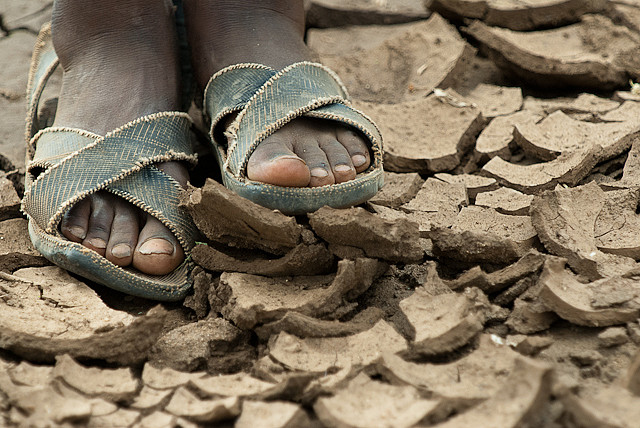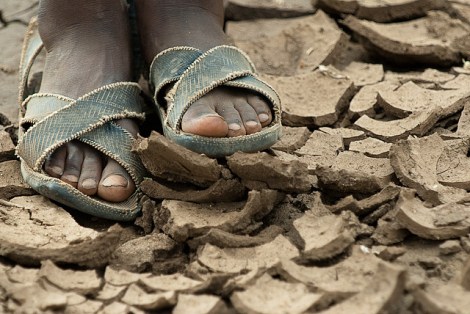It’s not just America’s poor who will pay the most for climate collapse.
The World Bank’s new “Turn Down the Heat” report projects a 4 degree C (7.2 degree F) rise in global temperatures by 2100, a change that would have especially catastrophic consequences in the developing countries the World Bank is ostensibly attempting to aid. Yes, the climate class gap is global.
“We will never end poverty if we don’t tackle climate change. It is one of the single biggest challenges to social justice today,” World Bank President Jim Yong Kim told the media Friday.
From the report [PDF]:
The projected impacts on water availability, ecosystems, agriculture, and human health could lead to large-scale displacement of populations and have adverse consequences for human security and economic and trade systems. The full scope of damages in a 4°C world has not been assessed to date.
The World Bank finds that extreme weather, water shortages, falling crop yields, loss of biodiversity, and of course sea-level rise would all hit developing nations harder, especially as resources are further strained by a world population approaching 8, 9, 10 billion.
In a world rapidly warming toward 4°C, the most adverse impacts on water availability are likely to occur in association with growing water demand as the world population increases. Some estimates indicate that a 4°C warming would significantly exacerbate existing water scarcity in many regions, particularly northern and eastern Africa, the Middle East, and South Asia, while additional countries in Africa would be newly confronted with water scarcity on a national scale due to population growth …
The projected increase in intensity of extreme events in the future would likely have adverse implications for efforts to reduce poverty, particularly in developing countries. Recent projections suggest that the poor are especially sensitive to increases in drought intensity in a 4°C world, especially across Africa, South Asia, and other regions.
Not that the developed world would go unscathed — America would see much hotter, drought-ier summers. On the whole, the proportion of the world’s cropland affected by drought would increase from 15.4 percent today to 44 percent in 2100.
The report is emphatic that this projected climate apocalypse “must not be allowed to occur.” But, uh, how?
As Naomi Klein told Bill Moyers the other day, climate change really may be the single greatest free-market failure. That’s because it ultimately compounds the effects of corporate greed on the already disenfranchised. But carbon tax or not, the free market ain’t going anywhere.
“The solutions don’t lie only in climate finance or climate projects,” the World Bank says. “The solutions lie in effective risk management and ensuring all our work, all our thinking, is designed with the threat of a 4 degree Celsius world in mind.”
The report comes a week before nearly 200 nations will meet in Doha, Qatar, to discuss extending the Kyoto Protocol. It also comes on the eve of the gluttonous holiday season for an America that doesn’t really care about the Kyoto Protocol. Can righteous scientific scaremongering yield results when there’s a fat, glistening turkey on the table? Or at least, the tables that really matter?




